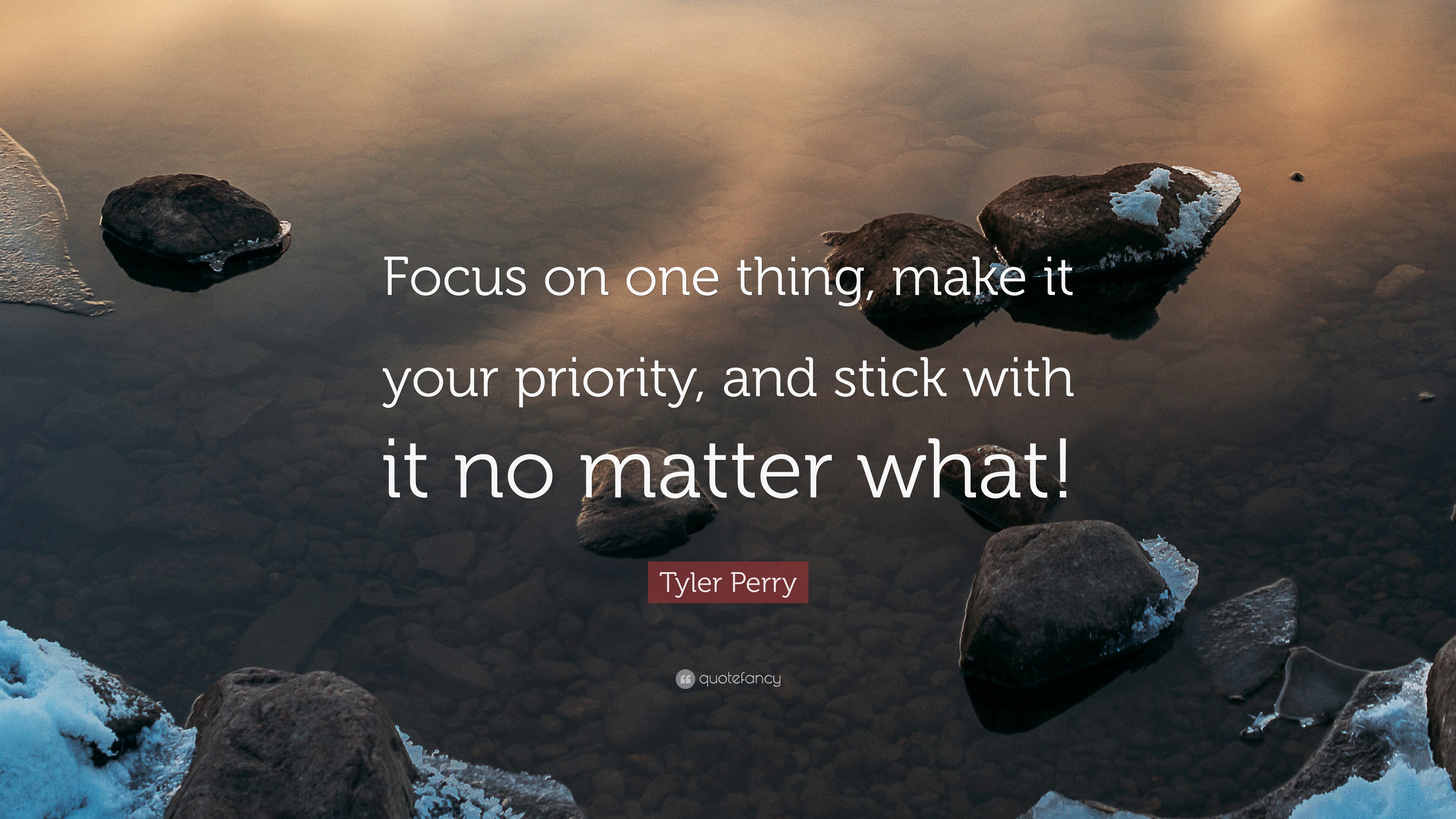
#Focus on one thing series
While there’s some truth to that, the true gift of a surgeon is the ability to single-mindedly focus on one person and complete a series of task over the course of many hours,” Dr. “People assume that a surgeon’s skill is primarily in the precision and steadiness of his or her hands.

Opting to focus on one task at a time can benefit many aspects of our life, including the workplace. In fact, many therapies based on mindfulness can even help patients suffering from depression, anxiety, chronic pain and other conditions.Īdvertising Policy Choose to tackle one task at a time “If we’re constantly attempting to multitask, we don’t practice tuning out the rest of the word to engage in deeper processing and learning.” One study found that college students who tried to multitask took longer to do their homework and had lower average grades.Īnother pitfall is that trying to do too much at once makes it harder to be mindful and truly present in the moment – and mindfulness comes with a plethora of benefits for our minds and our bodies. “The more we multitask, the less we actually accomplish, because we slowly lose our ability to focus enough to learn,” Dr. It can also affect our ability to learn, because in order to learn, we need to be able to focus. Other studies suggest that people who frequently “media multitask” (like listening to music while checking email or scrolling through social media while watching a movie) are more distracted and less able to focus their attention even when they’re performing only one task. For example, in studies, attempting to complete additional tasks during a driving simulation led to poorer driving performance.
#Focus on one thing full
It makes it harder for us to give our full attention to one thing. So-called multitasking divides our attention. But when the stakes are higher and the tasks are more complex, trying to multitask can negatively impact our lives – or even be dangerous. This might not be as apparent or impactful when we’re doing tasks that are simple and routine, like listening to music while walking, or folding laundry while watching TV. Studies show that when our brain is constantly switching gears to bounce back and forth between tasks – especially when those tasks are complex and require our active attention – we become less efficient and more likely to make a mistake. For the rest of us, our attempts to do multiple activities at once aren’t actually that. One study found that just 2.5% of people are able to multitask effectively. “When we think we’re multitasking, most often we aren’t really doing two things at once, but instead, we’re doing individual actions in rapid succession, or task-switching,” she says. We’re really wired to be monotaskers, meaning that our brains can only focus on one task at a time, says neuropsychologist Cynthia Kubu, PhD.

We do not endorse non-Cleveland Clinic products or services. Advertising on our site helps support our mission. Cleveland Clinic is a non-profit academic medical center.


 0 kommentar(er)
0 kommentar(er)
